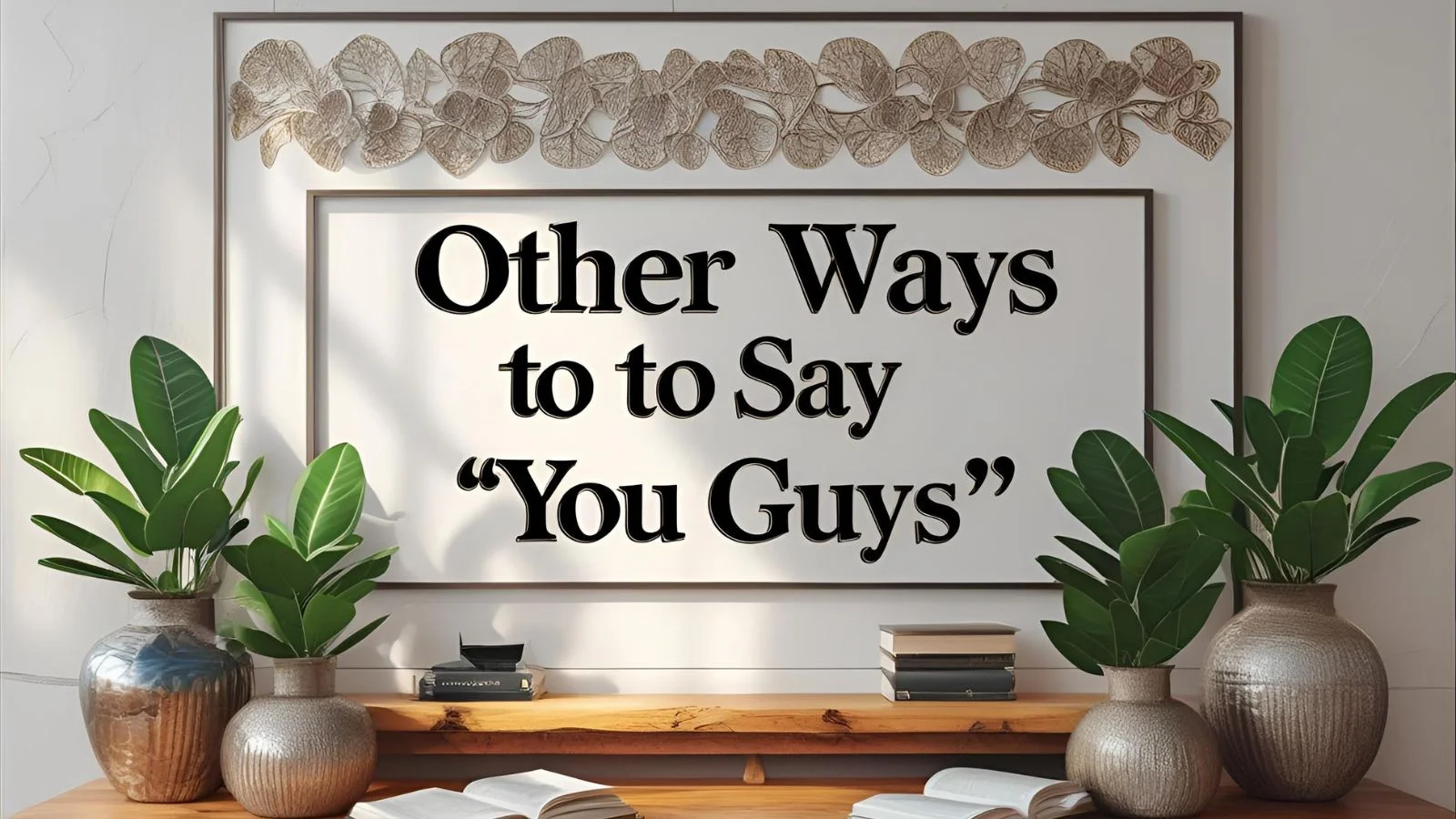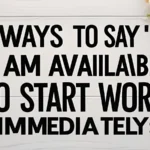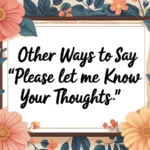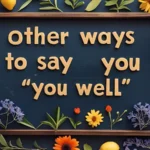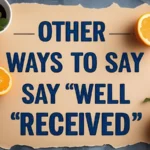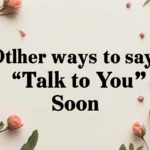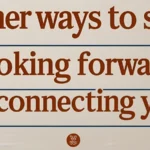Language is constantly evolving, and the words we use to address groups of people can shape conversations in meaningful ways. While “you guys” has been a commonly used phrase for years, it may not always be the best option. Some people prefer gender-neutral alternatives, while others enjoy regionally unique expressions. Whether you want to sound more inclusive, professional, or just switch up your vocabulary, there are plenty of great substitutes for “you guys.” Other Ways to Say “You Guys”.
In this article, we’ll explore 15 different ways to say “you guys” and break down how each phrase fits different situations. From casual and friendly to formal and respectful, you’ll find the perfect expression to match your tone. Whether you’re addressing friends, colleagues, or a general audience, this list will help you navigate social and professional interactions with ease. Let’s dive into the best alternatives!
Everyone
“Everyone” is a great way to address a group in an inclusive and respectful manner. It works in both formal and informal settings, making it a versatile alternative to “you guys.” Whether you’re speaking in a meeting, giving a presentation, or greeting a group of friends, “everyone” ensures that no one feels excluded.
For example, instead of saying, “Hey, you guys, let’s get started,” you can say, “Hey, everyone, let’s get started.” This simple switch makes your language more neutral and universally accepted. It also helps avoid assumptions about gender, which is important in diverse environments.
Using “everyone” also brings a sense of unity and teamwork. It naturally includes all individuals present, making it a great choice for classroom settings, work meetings, and community events. Since it’s commonly used, people will instantly understand your intent without needing any clarification.
Read More: Other Ways to Say “Thank You for Reaching Out to Me”
Folks
“Folks” is a friendly and warm way to address a group. It carries a relaxed and casual tone, making it great for social gatherings, customer service interactions, and even workplace environments with a laid-back culture.
For example, instead of saying, “You guys ready to go?” you can say, “Folks, are you ready to go?” This shift makes your speech sound more inviting and accommodating. It’s commonly used in the southern and midwestern United States, giving it a down-to-earth and approachable feel.
One of the biggest advantages of using “folks” is its inclusivity. Unlike “you guys,” which can be perceived as gendered, “folks” is entirely neutral. It also works well in professional settings when addressing customers or colleagues. When speaking in front of a mixed crowd, it helps ensure everyone feels included without sounding too formal.
Team
If you’re in a professional, academic, or sports setting, “team” is an excellent alternative. It fosters a sense of collaboration and unity, making it ideal for workplaces, classrooms, and athletic groups. Instead of saying, “You guys need to finish this project,” try saying, “Team, we need to finish this project.”
The word “team” emphasizes working together toward a common goal. It naturally encourages cooperation and motivation, making it a perfect fit for leadership roles. Managers, teachers, and coaches often use this term to create a sense of belonging and teamwork among their groups.
Additionally, “team” can make communication feel more positive and supportive. Instead of singling out individuals, it places focus on the group as a whole. This makes it a great choice when trying to build morale or strengthen group dynamics.
Y’all
“Y’all” is a widely used alternative to “you guys,” especially in the southern United States. It’s a contraction of “you all” and is known for its friendly and informal tone. Whether you’re chatting with friends, family, or coworkers in a casual setting, “y’all” adds a warm and inviting touch to your speech.
For example, instead of saying, “Are you guys coming to the party?” you can say, “Are y’all coming to the party?” This phrase is easily understood and helps remove any gendered assumptions from the conversation.
Beyond its regional charm, “y’all” is efficient and smooth in spoken language. It works especially well in hospitality and service industries, where creating a welcoming atmosphere is key. If you’re looking for a casual, inclusive, and personable alternative, “y’all” is a fantastic choice.
Friends
“Friends” is a warm and inviting way to address a group of people, making it an excellent alternative to “you guys.” It creates an instant connection and makes your speech feel friendly and approachable. Whether you’re talking to a group of actual friends, colleagues, or an audience, “friends” sets a positive and welcoming tone.
For example, instead of saying, “You guys should check this out,” you can say, “Friends, you should check this out.” This small shift makes your language more personal and engaging, helping to build rapport with those around you.
Using “friends” also helps foster inclusivity. It works well in social gatherings, public speaking, and even professional settings where a touch of warmth is appropriate. Whether you’re leading a group discussion or greeting attendees at an event, addressing people as “friends” can create a sense of unity and belonging.
Crew
“Crew” is a fun and energetic alternative to “you guys,” making it perfect for casual and social settings. It brings a sense of camaraderie and teamwork, making it a great choice for sports teams, work groups, and friend circles. When you say “crew,” it feels like you’re all in something together, which helps build stronger connections.
For instance, instead of saying, “Are you guys ready to go?” you could say, “Is my crew ready to go?” This simple change makes the conversation feel more inclusive and exciting. It’s especially useful for leaders, such as coaches, managers, or event organizers, who want to inspire a sense of unity.
“Crew” works best in informal situations, adding a fun and dynamic vibe to your speech. Whether you’re addressing coworkers, a group of volunteers, or just your circle of friends, using “crew” makes communication feel more engaging and spirited.
Teammates
“Teammates” is an excellent choice when speaking to a group of people who are working together toward a common goal. It naturally encourages collaboration, motivation, and a sense of shared purpose. This makes it a great option for sports teams, workplaces, classrooms, and any other group setting where cooperation is key.
For example, instead of saying, “You guys did a great job,” you can say, “Teammates, you did a great job.” This phrase instantly makes people feel included and appreciated. It emphasizes unity and shared effort, reinforcing the idea that everyone is working together.
Using “teammates” also creates a positive and encouraging atmosphere. It helps boost morale and reinforces a sense of belonging. Whether you’re a coach motivating players, a manager leading employees, or a teacher encouraging students, this term is a fantastic way to promote teamwork and inclusivity.
Peeps
“Peeps” is a fun, lighthearted, and casual way to refer to a group of people. It’s short for “people” and is commonly used in relaxed conversations among friends, family, or social circles. If you want to sound playful and upbeat, “peeps” is a great alternative to “you guys.”
For example, instead of saying, “You guys are going to love this,” you can say, “Peeps, you’re going to love this.” This makes the conversation feel more engaging and friendly, especially in informal settings. It’s commonly used on social media, in text messages, and in everyday speech when talking to close friends.
Because of its informal nature, “peeps” isn’t the best choice for professional settings. However, if you’re addressing a fun, laid-back crowd, it’s a perfect way to add some personality to your language. It’s ideal for casual meetups, online communities, or any situation where you want to keep things light and friendly.
Squad
“Squad” is a trendy and energetic way to refer to a group of people, making it a great alternative to “you guys.” It has a modern and youthful vibe, often associated with close-knit groups of friends, coworkers, or teammates. If you want to sound cool and confident, “squad” is the perfect word.
For example, instead of saying, “You guys want to grab some food?” you can say, “Squad, who’s up for some food?” This change instantly makes the conversation feel more dynamic and fun. It adds a sense of exclusivity, as if you’re part of an awesome group with a shared identity.
“Squad” is best used in informal settings, especially among friends, social groups, or younger audiences. It works well in online communities, team environments, and casual gatherings. If you’re looking for a modern, high-energy way to address a group, “squad” is a fantastic option.
Class
“Class” is a useful and respectful alternative to “you guys” when addressing a group of students. It’s particularly effective in educational settings, making it ideal for teachers, tutors, or anyone leading a classroom discussion. Using “class” helps maintain a professional yet approachable tone.
For example, instead of saying, “You guys need to hand in your assignments,” a teacher could say, “Class, please hand in your assignments.” This creates a sense of structure and discipline while keeping the conversation inclusive and neutral.
Beyond the classroom, “class” can also be used in training sessions, workshops, or group lectures. It emphasizes the idea of learning and participation, making it a great way to address audiences in an educational or professional setting. If you’re a teacher or presenter, using “class” is a simple way to make your language more engaging and respectful.
All
“All” is one of the simplest yet most effective alternatives to “you guys.” It’s completely gender-neutral and works well in both casual and formal settings. Whether you’re addressing a group of friends, a meeting at work, or an audience at an event, “all” ensures that everyone feels included.
For example, instead of saying, “You guys need to listen up,” you can say, “All of you, please listen up.” This phrase is direct, clear, and universally understood. It’s especially useful when speaking to diverse groups where inclusivity is important.
Using “all” also makes communication more efficient. It eliminates unnecessary words and gets straight to the point while still sounding polite and engaging. Whether you’re speaking in a casual conversation or a professional setting, “all” is a simple yet powerful way to address a group effectively.
People
“People” is a straightforward and inclusive alternative to “you guys.” It works well in both casual and formal settings, making it a versatile choice for addressing a group. Whether you’re speaking to friends, coworkers, or an audience, “people” keeps your language neutral and widely acceptable.
For example, instead of saying, “You guys need to hear this,” you can say, “People, you need to hear this.” This phrase is clear and direct while ensuring that everyone in the group feels included. It eliminates gender-specific wording, making it a great option for professional and diverse environments.
Using “people” also adds a sense of engagement and importance to your message. It works especially well in public speaking, workplace meetings, and customer service interactions. If you’re looking for a neutral, effective, and natural way to address a group, “people” is a fantastic choice.
Everyone Here
“Everyone here” is a polite and welcoming alternative to “you guys.” It’s a great option when speaking to an audience, team, or large group in both casual and professional settings. This phrase makes people feel personally acknowledged while ensuring inclusivity.
For example, instead of saying, “You guys are doing great,” you can say, “Everyone here is doing great.” This shift in language adds warmth and engagement, making your speech feel more thoughtful and considerate. It works well in meetings, classrooms, events, and even casual conversations with friends or family.
Using “everyone here” is particularly useful when addressing a mixed group of people. It makes sure no one feels left out and naturally encourages unity. Whether you’re giving a speech, leading a team, or simply greeting a group, this phrase helps create a positive and inclusive atmosphere.
Conclusion
Finding the right alternative to “you guys” can help make your language more inclusive, professional, and engaging. Whether you prefer the casual warmth of “y’all,” the friendly approach of “folks,” or the collaborative feel of “team,” there are plenty of great options to fit every situation. Small changes in the way we speak can have a big impact on making people feel acknowledged and respected.
As language evolves, so should our choice of words. By embracing inclusive and versatile alternatives, you can communicate more effectively and foster positive interactions in any setting. Next time you’re about to say “you guys,” try switching it up with one of these thoughtful and engaging alternatives!
